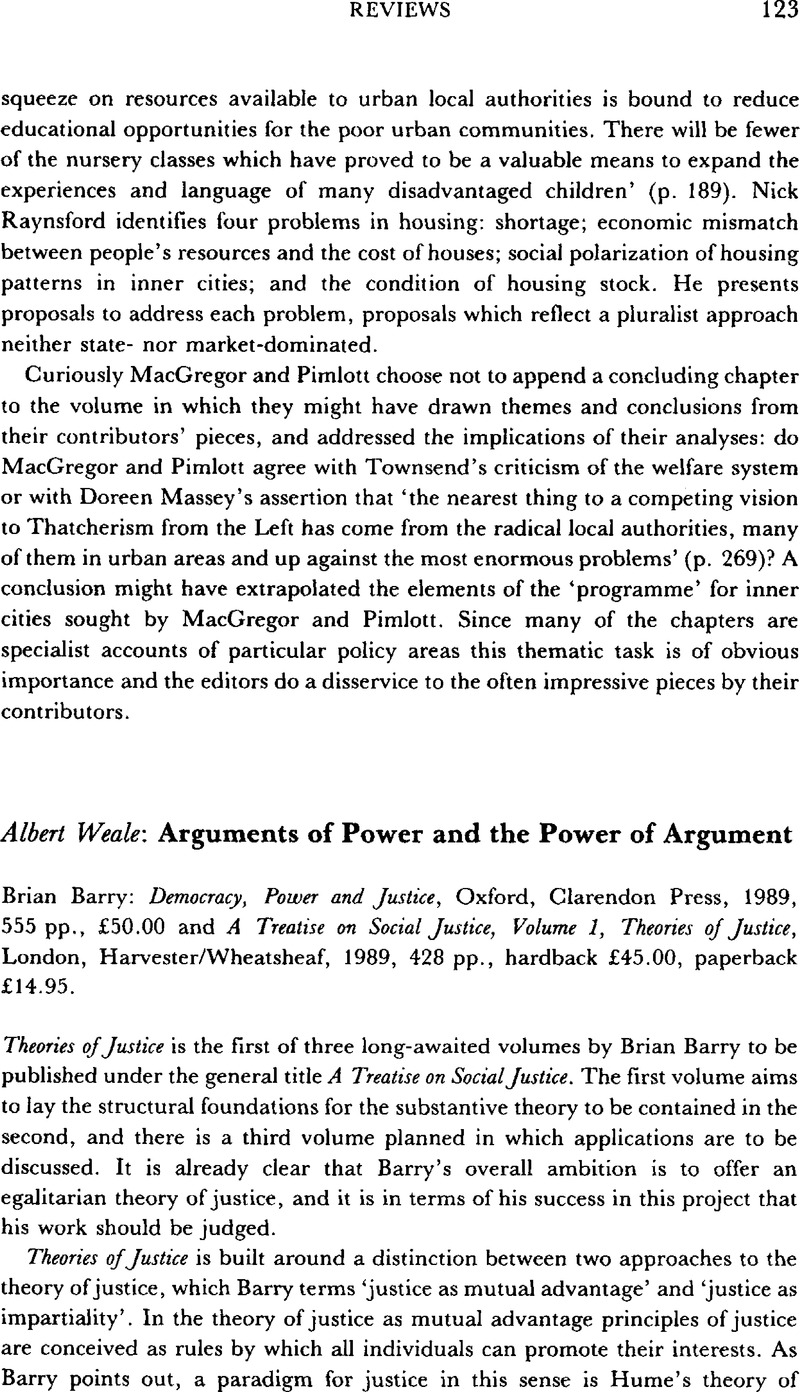No CrossRef data available.
Published online by Cambridge University Press: 28 March 2014

1 Barry, Theories Df Justice, p. 152, citing David Hume, Enquiries Concerning Human Understanding and Concming the Principles Of Morals, ed. L. A. Selby-Bigge, 3d ed., ed. P. H. Nidditch, Oxford: Clarendon Press, 1975, p. 495.
2 Theories ofJustice, p. 7.
3 Barry, Theories of Justice, p. 284, citing Scanlon, T. M., ‘Contractualism and Utilitarianism’ in Sen, Amartya and Williams, Bernard (eds), Utilitarianism and Ecyond, Cambridge, Cambridge University Press, 1982, p. 116 Google Scholar.
4 Barry, Theories of Justice, p. 285.
5 Rawls, John, A Theory of Justice, London, Oxrord University Press, 1972 Google Scholar.
6 See, for example, Theories of Justice, p. 269.
7 Barry, Theories of Justice, p. 189.
8 Theories of Justice, pp. 352–3.
9 Theories of Justice, pp. 347–8.
10 Brian Barry, Sociologists, Economists and Democracy, London, Collier-Macmillan, 1970.